Working Papers
In order to make current research results available to a broad public at an early stage, the IfM Bonn has launched the Working Paper Series. Here, IfM-Bonn external researchers can also publish their conference papers and papers still in the review process from start-up and entrepreneurship research, research on family businesses and SMEs.
62 Results
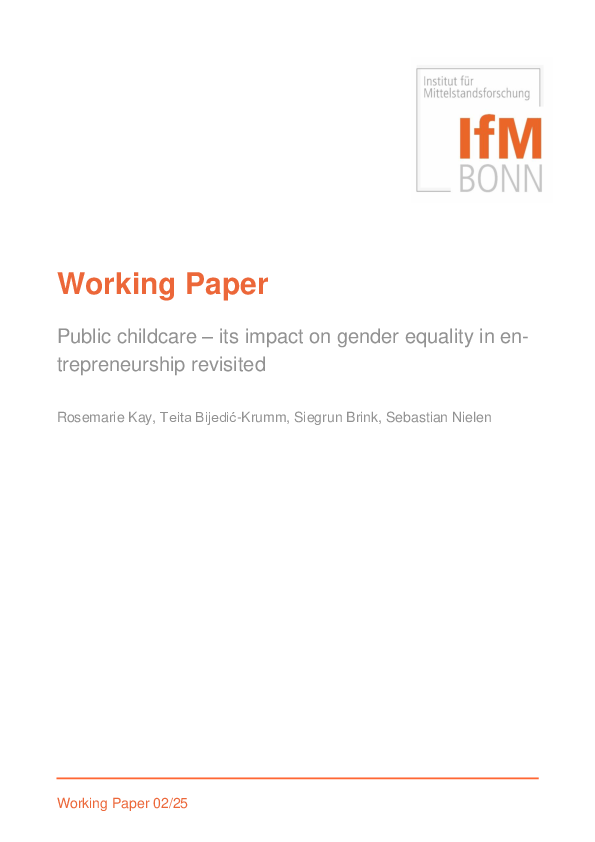
Working Papers | 2025 Public childcare – its impact on gender equality in entrepreneurship revisited
The paper at hand analyzes the impact of public childcare provision on start-up rates of women and men in Germany based on public statistical data covering the years 2012 to 2018.

Working Papers | 2025 Climate risk perceptions of businesses: the role of experience and objective risk factors
Based on data from a large-scale survey of German businesses, it is investigated how businesses assess the acute physical climate risk presented by the increased frequency of natural hazards: droughts, storms, extreme heat, heavy precipitation, and floods.

Working Papers | 2024 Being the boss at work and at home – Self-employment and conflicts between partners
The self-employed are their own bosses and make independent decisions on how to achieve their goals

Working Papers | 2024 Family business succession planning: Are the outcomes dependent on the predominant gender in the management board?
While existing research on business successions stresses the importance of the economic situation of family business in this context, research on women’s entrepreneurship, however, suggests that women-led businesses may be less economically attractive for potential successors because of structural differences in comparison to men-led business.
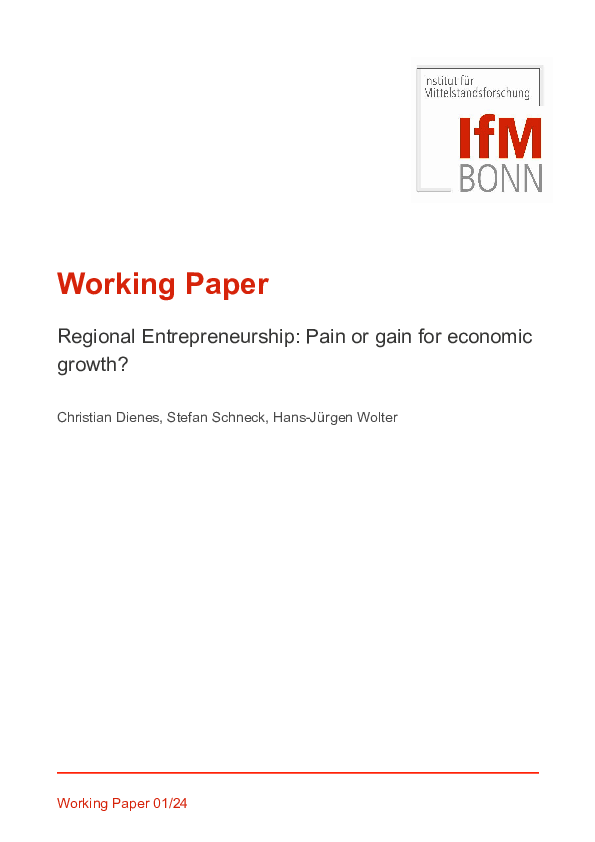
Working Papers | 2024 Regional Entrepreneurship: Pain or gain for economic growth?
This research note examines the relationship between start-up rates and GDP per capita growth in urban and rural regions in Germany.

Working Papers | 2021 In the eye of the beholder? Why we need to differentiate between SMEs and Mittelstand
A common fallacy is that SMEs is the translation for Mittelstand companies. Until today, there is no common, widely accepted and consistently applied understanding of what constitutes the Mittelstand.
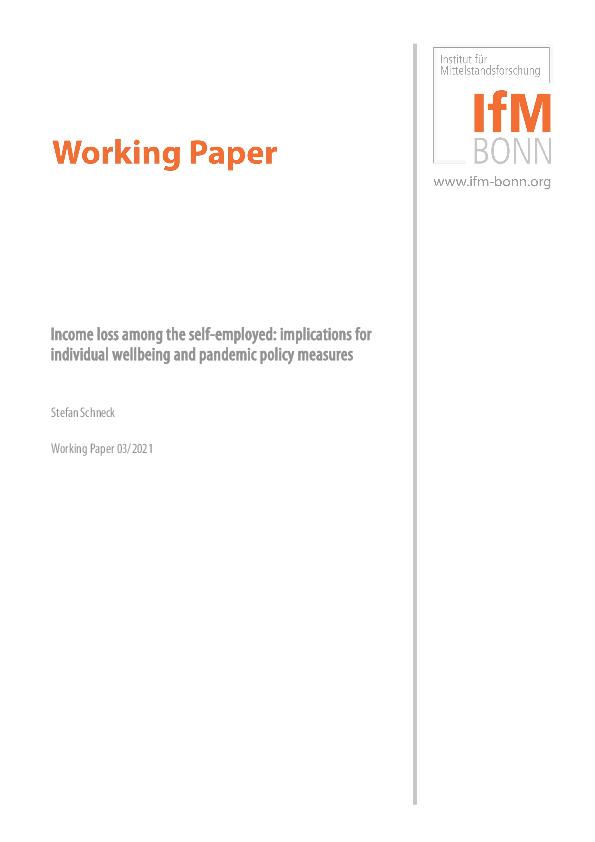
Working Papers | 2021 Income loss among the self-employed: implications for individual wellbeing and pandemic policy measures
Due to the pandemic-induced economic crisis, self-employed individuals are currently suering considerable income losses. The self-employed and the members in their households usually form an economic unit.
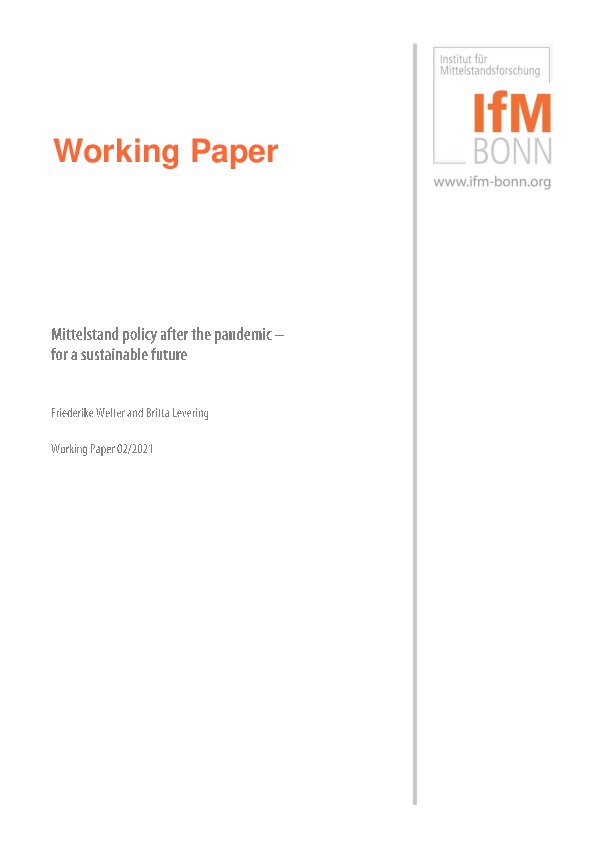
Working Papers | 2021 Mittelstand policy after the pandemic – for a sustainable future
Covid 19, digitalisation, Green Deal – the Mittelstand will face great challenges in the coming years in addition to their sector and size-specific tasks.
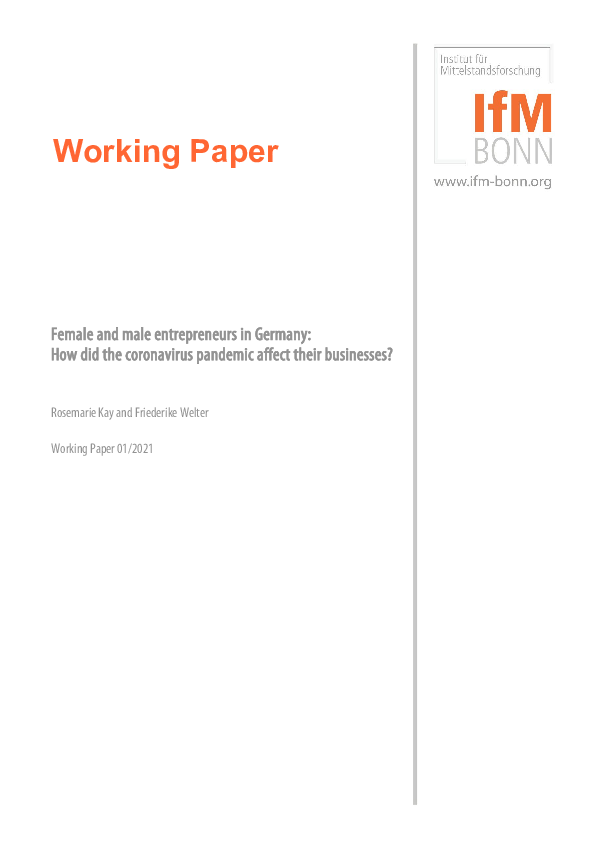
Working Papers | 2021 Female and male entrepreneurs in Germany: How did the coronavirus pandemic affect their businesses?
Restrictions in the wake of the coronavirus pandemic have affected and continue to affect the operations of entrepreneurs. A wide range of support measures were designed to mitigate their consequences. This paper traces the economic development in the various sectors and provides an overview of the support measures.
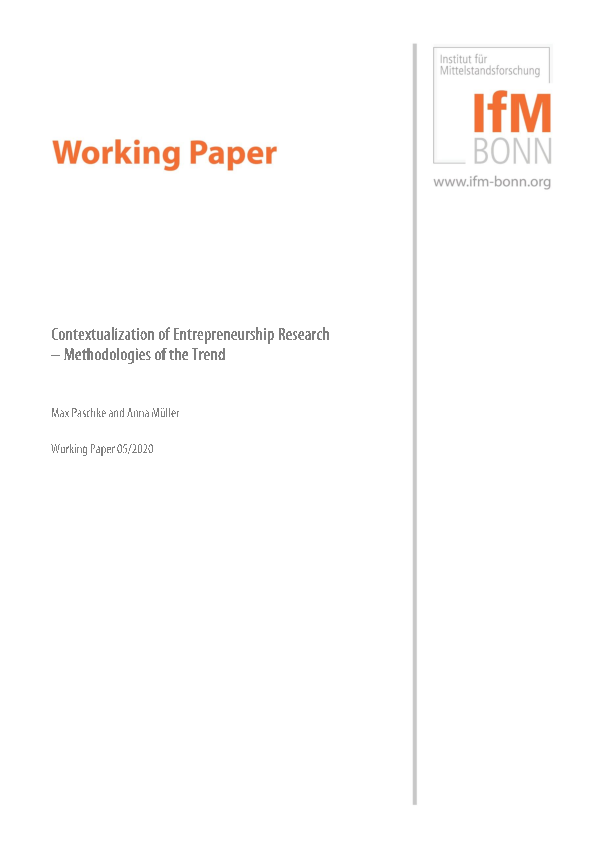
Working Papers | 2020 Contextualization of Entrepreneurship Research
In the last decade, contextualization has matured into an important topic of entrepreneurship research and continues to attract great interest. However, from a methodological point of view, contextualization still seems to pose significant challenges.
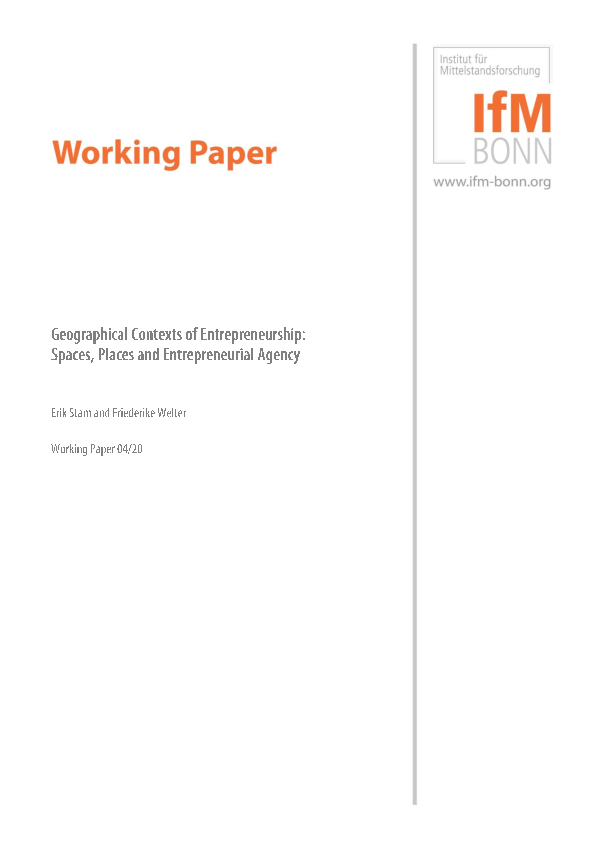
External publication, Working Papers | 2020 Geographical Contexts of Entrepreneurship: Spaces, Places and Entrepreneurial Agency
The article focuses on contexts of entrepreneurship, in particular geographical contexts, and entrepreneurial agency.
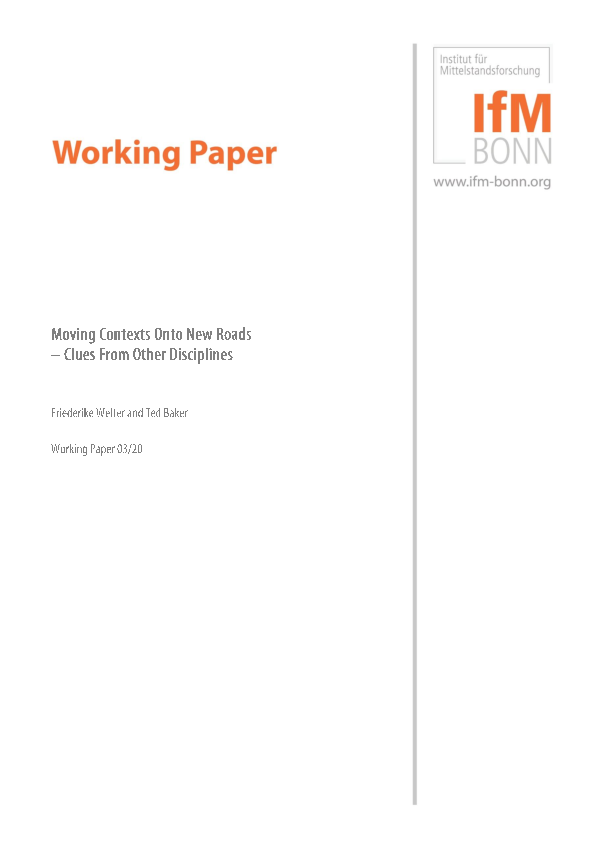
Working Papers | 2020 Moving Contexts Onto New Roads – Clues From Other Disciplines
This paper responds to Welter’s (2011) call to pay more attention to the diversity of entrepreneurship in theorizing contexts by examining how places come to be understood as entrepreneurial.

Working Papers | 2020 Contexts and gender – Looking back and thinking forward
The working paper shows how the gender context debate has developed from its initial focus on the contextualization of gender to the consideration of gender in context.
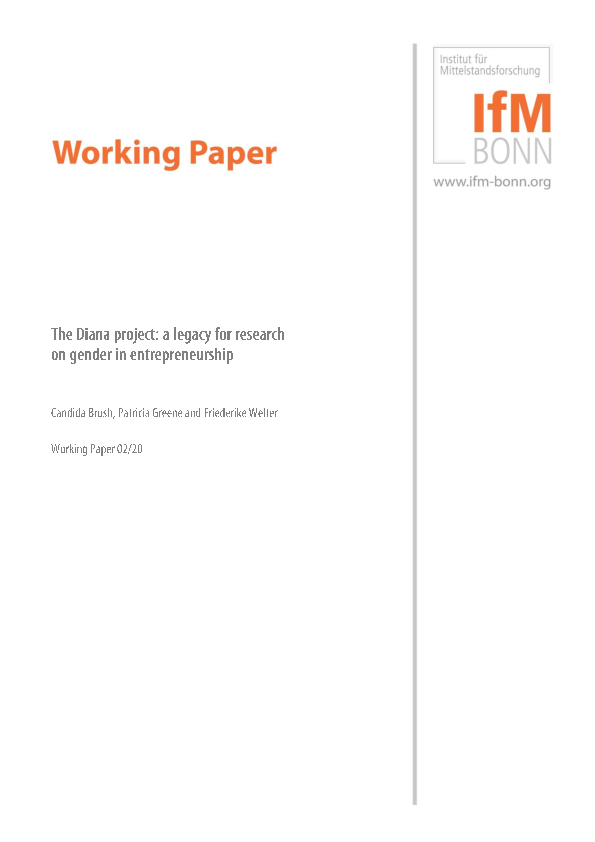
Working Papers | 2020 The Diana project: a legacy for research on gender in entrepreneurship
The working paper provides a brief history of the evolution of the Diana Project and the Diana International Research Conference.
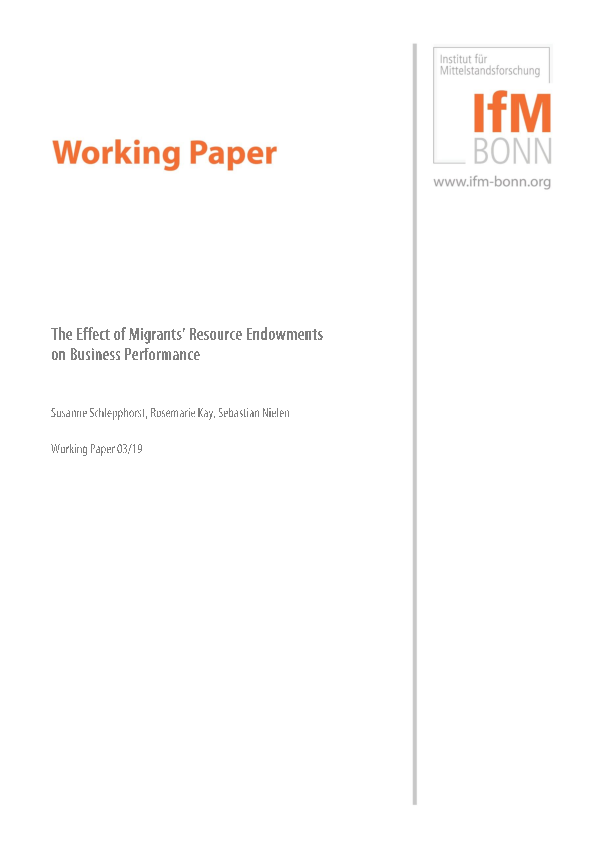
Working Papers | 2019 The Effect of Migrants' Resource Endowments on Business Performance
This paper questions the stereotypical image of migrant-led companies as being less successful than native-led businesses.
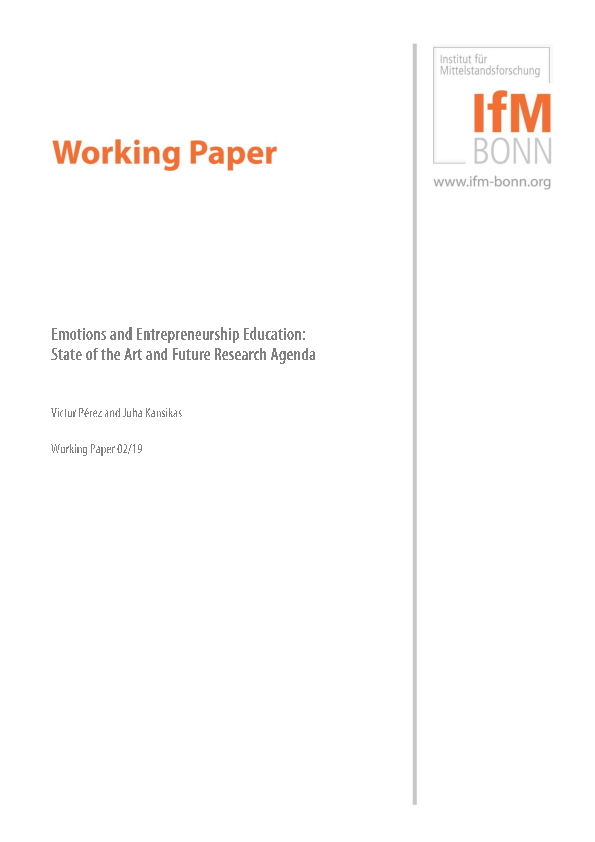
Working Papers | 2019 Emotions and Entrepreneurship Education: State of the Art and Future Research Agenda
In their contribution, Victor Pérez and Juha Kansikas not only give an overview of the results of previous research on "Entrepreneurship Education and Emotions" ...
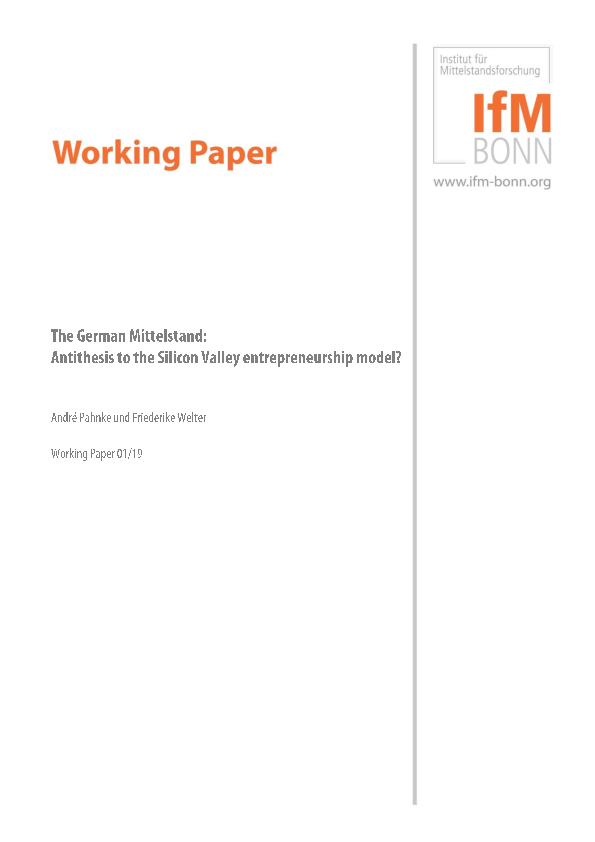
Working Papers | 2019 The German Mittelstand: Antithesis to the Silicon Valley entrepreneurship model?
Whilst internationally, the Mittelstand in Germany is admired and many countries try to emulate it, the current debate in Germany praises the Silicon Valley model of entrepreneurship, contrasting the Mittelstand as low-growth, low-tech and non-innovative – in short: as a hindrance to Germany’s economic future.
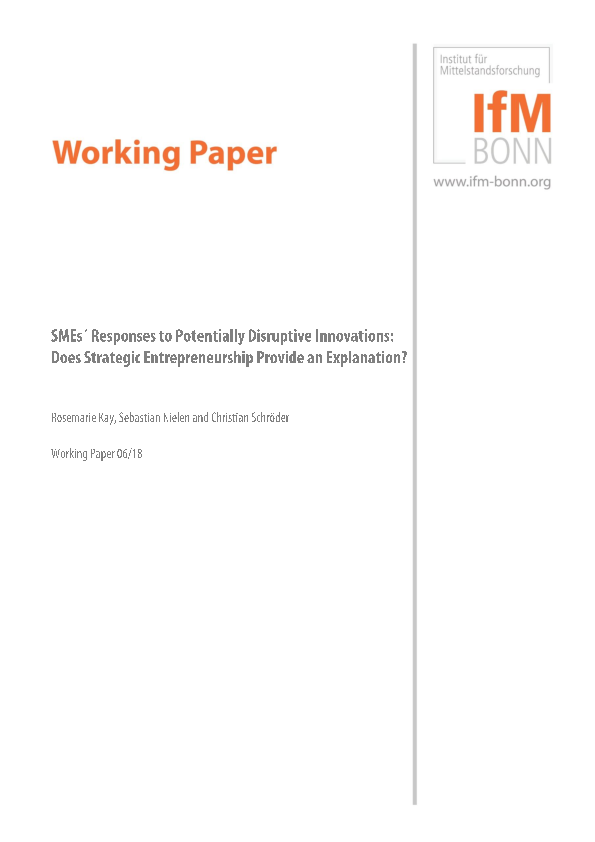
Working Papers | 2018 SMEs´ Responses to Potentially Disruptive Innovations: Does Strategic Entrepreneurship Provide an Explanation?
This study analyzes how SMEs react to the danger of disruptive innovations or new business models in the course of increasing digitization. We assume that the concept of the "strategic entrepreneur" is suitable to explain the different behavior of SMEs in dealing with disruptive innovations or new business models.
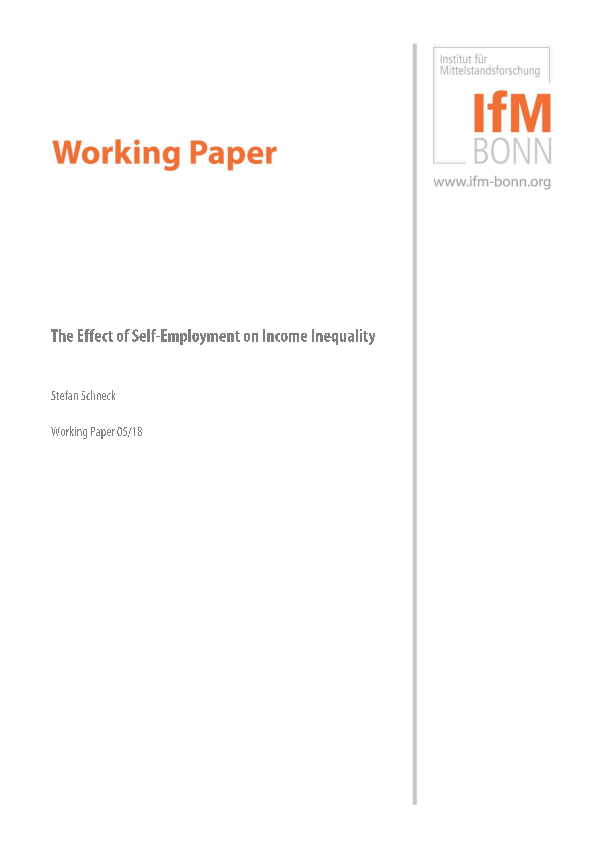
Working Papers | 2018 The Effect of Self-Employment on Income Inequality
The self-employed are relatively often among the top earners - or among the lowest earners.
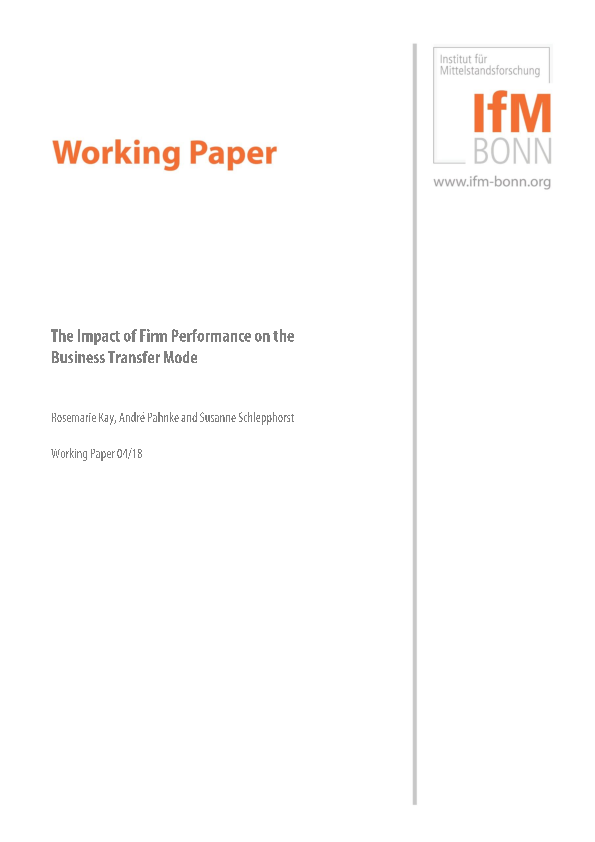
Working Papers | 2018 The Impact of Firm Performance on the Business Transfer Mode
This paper examines the influence of corporate performance on the desired type of business transfer. Family businesses usually strive for succession within the family.